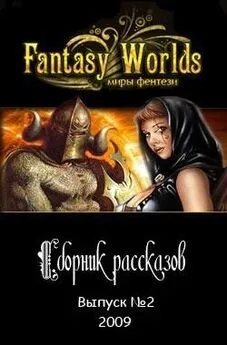Пользователь - WORLDS END
- Название:WORLDS END
- Автор:
- Жанр:
- Издательство:неизвестно
- Год:неизвестен
- ISBN:нет данных
- Рейтинг:
- Избранное:Добавить в избранное
-
Отзывы:
-
Ваша оценка:
Пользователь - WORLDS END краткое содержание
WORLDS END - читать онлайн бесплатно полную версию (весь текст целиком)
Интервал:
Закладка:
Certainly that letter could do no injury to any nation at war; and Lanny wrote the salesman in Rotterdam, recalling their meeting on the train and hoping that this would find Mr. Robin well, and that his business had not been too greatly injured by the war. Lanny explained that here was a letter to the friend he had visited in Silesia. Mr. Robin was welcome to read the letter, and Lanny assured him that it contained no war secrets; Mr. Robin would be at liberty to test the paper with lemon juice or with heat - Lanny had been reading and hearing about spies and the way they operated. He hoped that this request would not embarrass Mr. Robin in any way; if it did, he was at liberty to destroy the letter; otherwise would he please mail it in a plain envelope addressed to Kurt Meissner at Schloss Stubendorf, Upper Silesia.
Lanny posted the two letters in the same envelope, and then waited. In due course came a reply from Mr. Robin, cordial as Lanny had expected. Mr. Robin was pleased to take his word about the letter, and would mail future letters if so desired. He recalled his fellow-traveler with pleasure and hoped to meet him again some day. No, the war had not injured his business; on the contrary, he had been able to expand it along new lines, not so different from those of Lanny's father. Mr. Robin told about his family; he had two little boys, one ten and the other eight, and he took the liberty of enclosing a snapshot, so that Lanny might feel that he knew them.
Lanny studied the picture, which had been taken in the summertime, and showed the family standing at the entrance to a pergola, with a Belgian shepherd dog lying on the ground in front of them. Mr. Robin had on an outing shirt with a soft collar such as Lanny himself wore; Mrs. Robin was stoutish and kind-looking, and the two little boys gazed soberly at Lanny, as if they had known that he was going to be seeing them, and wondered what sort of fellow he might be. They had dark wavy hair like their father, and large, gentle eyes; on the back their names were written, Hans and Freddi, and the information that the former played the violin and the latter the clarinet. Lanny thought once more that he liked the Jews, and asked his mother why they didn't know any. Beauty replied that she hadn't happened to meet them; Robbie didn't like them any too much.
A couple of weeks later came a letter postmarked Switzerland, without the name of any sender. It proved to be from Kurt - evidently he too had some friend whom he trusted. It was in the same cautious tone as Lanny's. "I am glad to hear about an American's attitude to present events. You will of course understand that my point of view is different. You are fortunate in being able to go on with your music studies. For me it has become necessary to make preparations for a more active career. Whatever happens, I will always think of you with warm friendship. My soul remains what it has always been, and I count upon yours. I will write you when I can and hope that you will do the same. The members of my family are well at present. All, as you can imagine, are very busy. Those who are at home join me in kindest regards. Kurt."
Lanny showed this to his mother, and she agreed that Kurt must be preparing for some sort of military service. He was only sixteen, but then the Germans were thorough and began young. His brothers, no doubt, were in the fighting now. Lanny tried to read between the lines; that sentence about his friend's soul meant to tell him, over the censor's shoulder, that even though Kurt went to war, he would still believe in the importance of the ideal, and in art as an instrument for uplifting mankind. The war was not going to make any difference in their friendship.
V
Since Kurt was counting upon Lanny's soul, Lanny must be worthy of it. He decided that he spent too much time reading love stories, and should begin at once upon something uplifting. He was wondering what to choose, when he happened to hear M. Rochambeau, the retired diplomat, remark that the priests and bishops who were blessing the instruments of slaughter in the various nations were not very well representing the spirit of Jesus. Lanny reflected that he had seen many pictures of Jesus, and of Jesus's mother, and of apostles and angels and saints and what not, yet he knew very little about the Christian religion. Both his mother and his father had had it forced upon them in their youth, and hated it. But as a matter of art education, shouldn't Lanny read up on it?
He asked the white-haired and courtly ex-diplomat where he could find out what Jesus had said, and was reminded that the words were set down in some old books called the Gospels. M. Rochambeau didn't happen to own a copy, and Beauty's friends, of whom the boy made inquiry, found the idea amusing. Finally Lanny found in a bookstore a copy of this ancient work.
Winter was coming now. In Flanders and through northern France a million men were lying out in the open, in trenches and shell holes half full of filthy water which froze at night. They were devoured by vermin and half paralyzed by cold, eating bread and canned meat, when it could be brought to them over roads which had been turned into quagmires. All day and night bullets whistled above them and shells came down out of the sky, blowing bodies to fragments and burying others under loads of mud. The wounded had to lie where they fell until death released them, or night made it possible for their fellows to drag them back into the trenches.
And with this going on a few hundred miles away, Lanny was reading the story of Jesus, four times over, with variations. He was deeply touched by it each time, and wept over the way that poor man had been treated, and loved him for the kind and gentle things he had said. If somebody had happened along to speak for one of the religious sects - almost any of them - that person might have made a convert. As it was, Lanny had no one to consult but a worldly-wise ex-diplomat, who told him that if he wanted to follow Jesus he would have to do it in his own heart, because none of the churches were traveling in that path or near it.
So Lanny didn't go to church. Instead he studied arithmetic, algebra, and modern history with his new tutor, Jerry Pendleton, a happy-go-lucky fellow whom Beauty Budd had met in the way she met most persons, at a party for tea and dancing; she liked him because he had red hair, a gay disposition, and good manners. He had come to Europe with a chum, working their way, and had got caught, first by the war, and then by a mademoiselle whose mother conducted the pension at which he was staying. Instead of going back to finish his senior year in a fresh-water college, Jerry had lingered on, and a job as tutor presented itself as a happy solution of several problems.
The young man's account of education in the United States was not exactly favorable; he said that the main thing you learned was how to get along with other fellows, and with girls. He confessed, as Mr. Elphinstone had done, that he had forgotten all the subjects he was going to teach, but he and Lanny could read together, and there was that magnificent encyclopedia which could never go wrong. Jerry would at least keep the kid out of mischief - and at the same time Mrs. Budd could give him kindly advice about the most bewildering love affair he had ever run into. Mlle. Cerise, it appeared, was being brought up in French fashion, which meant that she couldn't see a young man without her mother being close by, and he couldn't even bring her to one of Mrs. Budd's tea parties without a chaperon. At home you took a girl motoring, or if you didn't have a car, you bicycled and had a picnic in the woods.; but here they were all nuns until after they were married - and then, apparently, you could pick them up in the gambling rooms at the casino.
"Not quite all of them," said Beauty, beginning the education of her son's tutor.
VI
Once again, for a day, Marcel Detaze was free from the censor. He was on his way to his post of duty, and poured out his heart to his beloved. This time he didn't hide from her the dangers to which he was going. The hour had come when she had to steel her soul.
Marcel was gay, as always; that was the way you had to take life, if you didn't mean to let it get you down. Make a work of art of it; put your best into it; play your little part, and be ready to quit before the audience got tired of you. Marcel described a "sausage balloon" as a grotesque and amusing object, in rebellion against the men who had created it and obstinately trying to break out of their control. It was huge and fat, and assumed changing shapes, and danced and cavorted in the air. A net of cords imprisoned it, and a steel cable bound it to the earth. The cable was on a pulley, and two stout horses or oxen plodding across a field let the balloon up or pulled it down.
All this for the sake of an observer who sat in a bulletproof basket underneath the balloon, equipped with field glasses and measuring instruments, and a telephone set. It was his task to spy out enemy entrenchments, and the movements of troops and guns. He had to have a keen eyesight, and be trained to recognize the difference between branches growing on trees and the same when cut down and made into a screen for a heavy gun. He had to know Birnam Wood when it was removed to Dunsinane. Also, he had to be a man who had traveled to the fiords of Norway and the Isles of Greece without getting seasick; for the winds which blew off the North Sea would toss him around like a whole yachtful of soap kings - so wrote the painter, who had been sorry for poor Ezra Hackabury, but couldn't help finding him funny.
Of course such a balloon would be a target for the enemy. Air-
planes would come darting out of the clouds at a hundred miles an hour, spitting fire as they came. "We have guns on the ground to stop them," wrote Marcel; "guns with high-angle mountings designed especially to shoot at planes, but I fear they are not very good yet, and Lanny should tell his father to invent better ones for my protection. The shells from these guns make white puffs of smoke when they explode, so that the gunner can correct his aim. The English call the guns 'Archies,' and I am told that this comes from some music-hall character who said: 'Archibald, certainly not!' It is wonderful, the humor with which the English fellows take this messy business. I have had one as an instructor and he has explained their jokes to me. The heavy shells which make an enormous cloud of black smoke they call 'Jack Johnsons,' because of a Negro prize fighter who is dangerous. Also they call them 'black Marias' and 'coal boxes.' Doubtless there will be new names by the time I get to the front."
Beauty broke down and couldn't read any more. It seemed to her horrible that men should make jokes about death and destruction. Of course they laughed so that they might not have to weep; but Beauty could weep, and she did. She was certain that her lover was gone forever, and her hopes died a new death every time she thought of him. Lanny, talking with M. Rochambeau, learned that his mother had cause for fear, because the job which Marcel had chosen represented just about the peak of peril in this war. A single correct observation followed by a well-placed shell might put a battery of guns out of action; so the enemy waged incessant warfare upon the stationary balloons. This far the French had managed to keep the mastery of the air, but the fighting was incessant and the death rate high. "Women must weep," a poet in Lanny's anthology had said.
VII
Mrs. Emily Chattersworth wrote the news. Learning of the dreadful sufferings of the wounded after the great battle of the Aisne, she had lent the Chвteau Les Forкts to the government for a hospital. Then she had been moved to go and see what was being done, and had been so shocked by the sight of mangled bodies brought in by the hundreds, and the efforts of exhausted doctors and nurses to help them, that she had abandoned her career as salonniиre and taken up that of hospital director. Now she was helping to organize a society in Paris for the aid of the wounded and was asking all her friends for help and contributions. Would Beauty Budd do something? Mrs. Emily said that Marcel might some day be brought to Les Forкts; and of course that fetched Beauty. Despite her vow to economize and pay her debts, she sent a check to her friend.
Читать дальшеИнтервал:
Закладка:




![Галина Романова - Лицензия на happy end [litres]](/books/1058996/galina-romanova-licenziya-na-happy-end-litres.webp)
